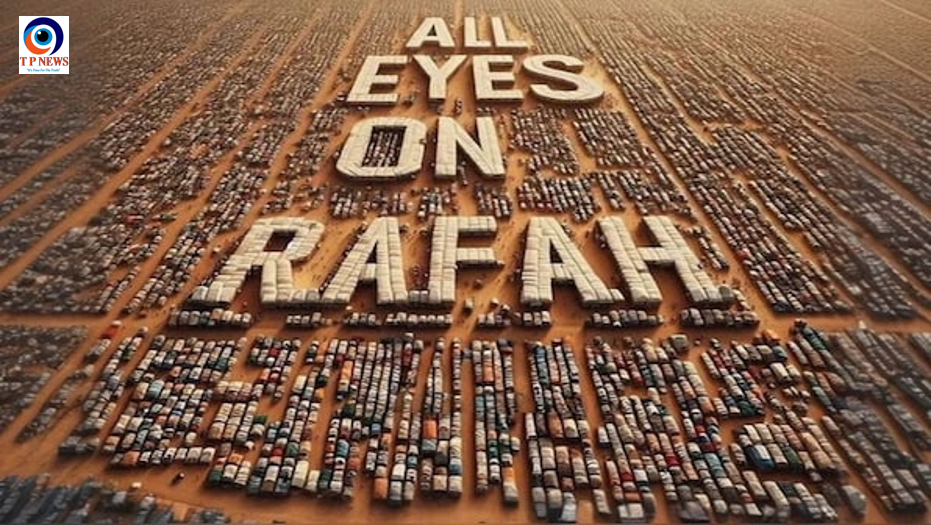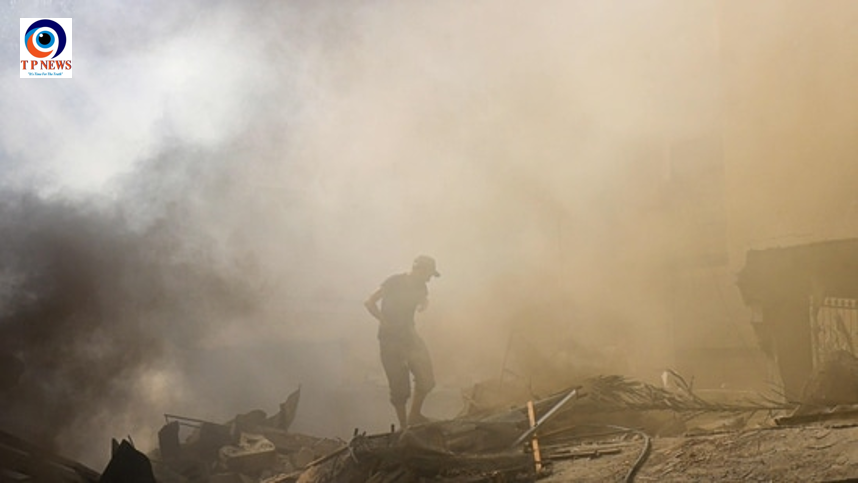In the last 24 hours, the slogan ‘All Eyes on Rafah’ has taken over social media platforms such as Instagram, X, and TikTok, garnering over 29 million shares on Instagram alone. This viral trend comes amidst escalating conflict in Gaza, where Israeli tanks have reached the center of Rafah despite international calls for a ceasefire.
The Beginning of ‘All Eyes on Rafah’
The phrase ‘All Eyes on Rafah’ gained traction following a comment by Rick Peeperkorn, director of the World Health Organization’s Office of the Occupied Palestinian Territories. In February, Peeperkorn remarked, “all eyes are on Rafah,” as Israeli Prime Minister Benjamin Netanyahu ordered an evacuation plan for the city ahead of an offensive against Hamas. This statement has since been adopted by human rights organizations like Oxfam and Save the Children, turning it into a global call for awareness and action.
Social Media Surge
On Tuesday, the phrase surged in popularity after Bollywood stars, including Alia Bhatt, Priyanka Chopra, and Kareena Kapoor, shared a powerful image on their Instagram Stories. The image, depicting tents arranged to spell out “All Eyes on Rafah,” has resonated globally. The photo, which appears AI-generated, shows an unnaturally symmetrical tent camp, an indication of artificial design. This imagery stands out as it doesn’t directly display the violence but still conveys the urgency and gravity of the situation.
Marc Owen Jones, an associate professor specializing in Middle East studies at Hamad Bin Khalifa University, noted the signs of AI generation in the image, such as unusual shadows and pattern repetition. Despite its artificial nature, the image has sparked significant emotional and social media engagement.
The Situation in Rafah
Rafah, located in southern Gaza near the Egyptian border, has been severely affected by the ongoing conflict. Originally home to about 171,889 people in 2017, the population has swelled to 1.4 million due to displacement caused by the war. The humanitarian crisis in Rafah is dire, with food shortages and widespread displacement.
On Sunday, an Israeli airstrike on a tent camp in Rafah resulted in the deaths of 45 civilians, with many more injured. Eyewitnesses described horrific scenes of charred bodies and severe injuries. Israeli Prime Minister Benjamin Netanyahu called the incident a tragic mistake and promised an investigation.
International Response
The airstrike, one of the deadliest in the ongoing conflict, has drawn widespread condemnation. Sam Rose, the UN agency for Palestinian refugees’ planning director, emphasized the brutality of the attack, particularly its impact on women and children. Germany also condemned the strike, describing the images of the aftermath as unbearable.
The United States, while acknowledging the tragedy, has stated that recent Israeli operations in Rafah do not constitute a major ground offensive that crosses US red lines. US National Security Council spokesperson John Kirby highlighted that the US is closely monitoring the situation and Israel’s investigation into the incident.
Conclusion
The ‘All Eyes on Rafah’ movement underscores the power of social media in raising global awareness about humanitarian crises. As the conflict in Gaza continues, the viral slogan serves as a poignant reminder of the ongoing struggles and the urgent need for international attention and action. With high-profile endorsements and widespread social media engagement, ‘All Eyes on Rafah’ is not just a trend but a powerful call for solidarity and change.










